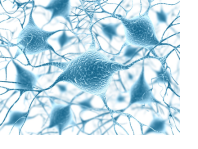Neurology - the Nervous System
 Definition
Definition
Neurology is a scientific study of the anatomy, functions, and organic disorders of nerves and the nervous system.
Overview
Neurology focuses on the human nervous system. It studies anatomy, histology, physiology, and biochemistry of the nervous system, and also pathological processes in a human body which lead to metabolic disorders of the nervous system and to changes of a blood-brain barrier.
Neuropathology is a neurology section which studies nervous system disorders. It includes general neurology (propaedeutics) and special neurology. The propaedeutics refers to the knowledge of conduction pathways, anatomo-physiological characteristics of the nervous system, and symptoms and syndromes of its defeat at different levels. Special neurology is devoted to the study of separate disorders of the nervous system, their aetiology, pathogenesis, clinics, diagnostics, and the development of prevention and treatment methods.
Section Structure
- Structure of the Nervous System
- Development of the Nervous System
- The Spinal Cord or Medulla Spinalis
- The Brain or Encephalon
- The Cranial Nerves
- The Spinal Nerves
- The Sympathetic Nerves
Posted in Neurology - the Nervous System
Ask a Question Or Join a DiscussionNeurology Section Contents
Subdivisions & Functions of Nervous System
The human nervous system is the most complex physical system known to mankind. It is a highly integrated system that consists of many billions interactive units whose constantly changing patterns of activity are reflected in every aspect of human behavior.



